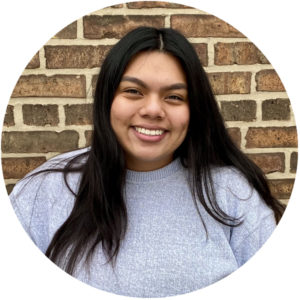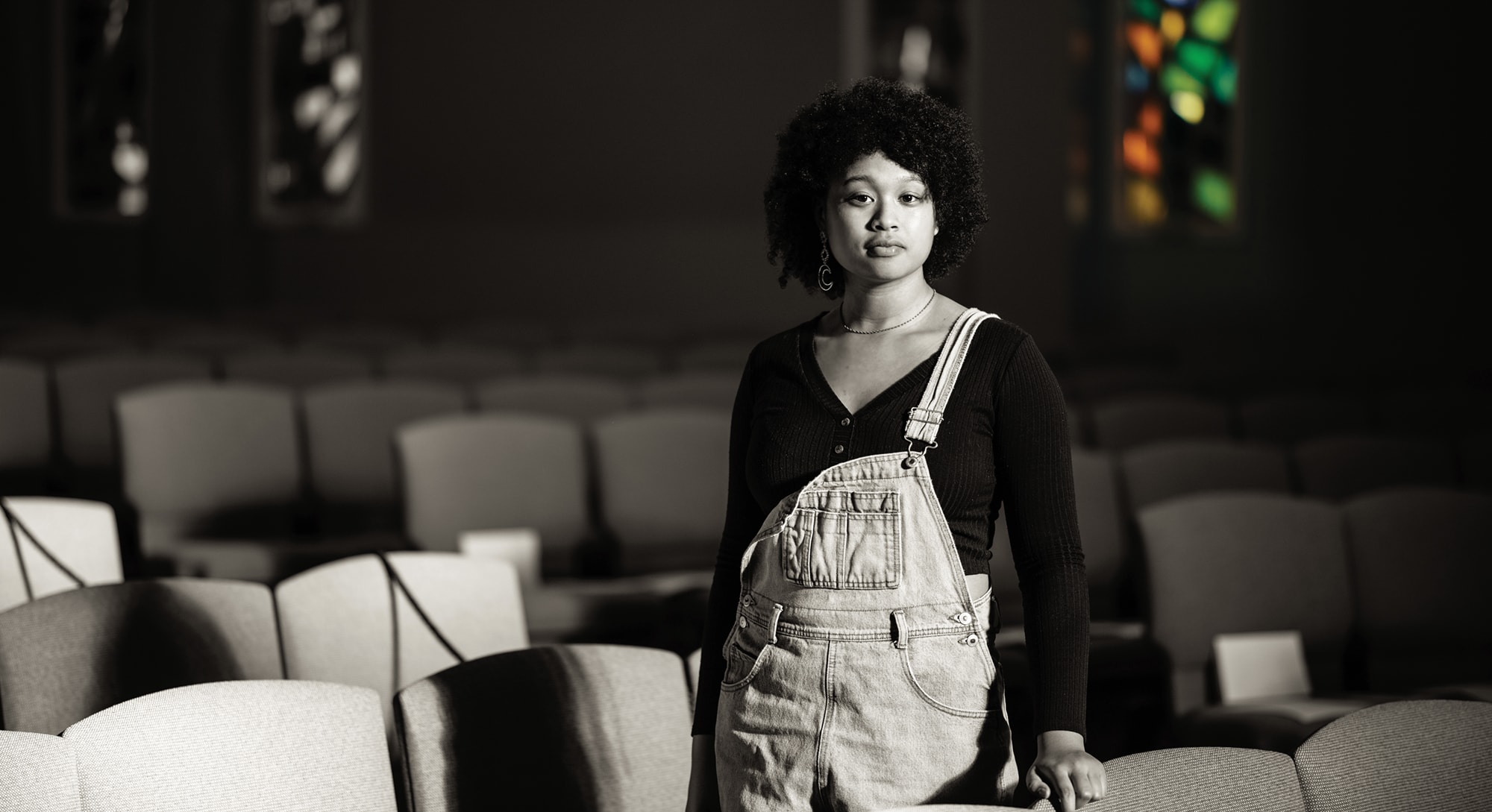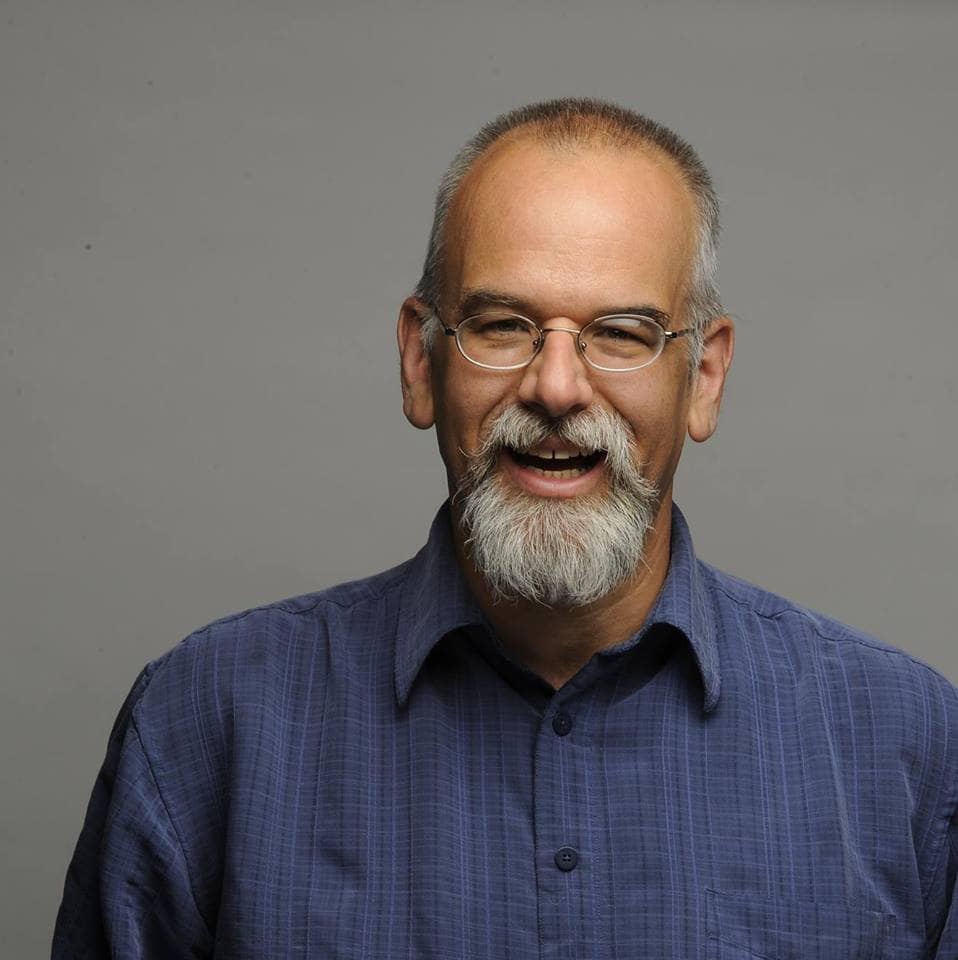And Is There Space for Them to Belong?
By Bob Smietana
It was touch and go that first year. The new congregation, known as Renew Church, had a hard time finding a place to meet and moved several times. Then, as the church’s startup group of about 40 people began to grow, their attempts to buy a place of their own fell through.
Around the same time, the members of First Baptist Church in Eau Claire faced a dilemma of their own. The once thriving 157-year-old congregation had shrunk to about 20 members, mostly older, who were struggling to hold on to their historic building.
They wanted the building to remain a “beacon of light” in the community, said Staples. So they decided to sell it at a reduced rate
to Renew.
Staples recalled walking through the church with some young families from Renew and an older member of First Baptist. Some of the kids were running around and being crazy, said Staples, and one of the moms was apologizing to their host.
“This gentleman had tears in his eyes and he said, ‘No, this is what we’re dreaming of—for this church to be full of young kids running around again,’” said Staples.
The “nothing in particular” group isn’t hostile to faith. Religion isn’t part of their life, but they haven’t sworn off it completely either.
Having a space of their own was a big step in making the church viable, Staples said. They renovated the building to give it a contemporary feel while retaining traditional elements such as pews. And their new home was in a great place—a few blocks from a major student hangout and surrounded by student rental housing for the University of Wisconsin–Eau Claire.
Before the coronavirus pandemic, Renew was drawing 300 to 350 worshipers, with 50 or so kids in the children’s ministry. About a third of the congregation are college students, while the rest are mostly young families.
Staples says they have worked hard to make newcomers, especially young adults, feel welcome. Many of the young people who come to Renew have a church background. Others have either been away from a church for a long time or never really found a connection to faith in Jesus.
“As soon as you walk inside, we’ve tried really hard to make a very welcoming space, where people can feel comfortable,” he said. “No matter who they are, they can come in and be part of what we’re doing and be part of the church.”
Creating such space is crucial these days, says Ryan Burge, assistant professor of political science at Eastern Illinois University. Fewer people are finding their way to church, said Burge, author of The Nones: Where They Came From, Who They Are, and Where They Are Going, a book about the rising number of Americans who have no ties to organized religion.
About one in four Americans is a so-called “None”—the nickname comes from surveys where people check off “none of the above” when it comes to religion—making them one of the largest religious categories in the country. As many people identify as Nones in the U.S. as they do Roman Catholic or evangelical. Among millennials, about 40 percent identify as Nones, according to the Pew Research Center. Only half of millennials identify as Christians.
Burge says the data draws a distinction between atheists and agnostics—whose numbers have been relatively stable—and what he and other sociologists call the “nothing in particulars.” “These are people who check the box of, ‘I am not an atheist but I am not a Christian either,’” he said. “That group is at least 20 percent of the population if not more. And they are the fastest growing religious group in America.”
The “nothing in particular” group isn’t hostile to faith. Religion isn’t part of their life, but they haven’t sworn off it completely either.
“What’s interesting is that a lot of them come back to Christianity over a period of time,” Burge said.
Burge points to data from the Cooperative Congregation Election Study, an annual survey of more than 50,000 Americans. In 2014, researchers followed up on people who had identified as Nones four years earlier. Almost all atheists and agnostics from 2010 still identified that way in 2014. The “nothing in particulars” were different. About 62 percent still identified that way. Thirteen percent had become atheist or agnostic.
However, more than a quarter of them had moved toward a religious tradition. Nearly 9 percent joined a non-Christian faith group, and 16.4 percent now identified as Christians at the end of that four-year period.
People don’t really feel like they belong until they’re participating.
“If a Christian is trying to be strategic about reaching out to those without a religious affiliation, the data tells a clear story,” Burge writes in The Nones. “Trying to convert atheists is going to end in failure ninety-nine times out of a hundred. The success rate for evangelizing agnostics is higher but still not great, succeeding just one in thirty times. However, that rate goes up dramatically for nothing in particulars.”
He calls being “nothing in particular” a kind of way station between faith and secularism—where people have not yet decided where to go. They are still open to faith, he said.
Along with that trending lack of faith in organized religion, churches face other challenges when trying to reach out to younger people and Nones, said Burge.
Politics is one of them, especially where churches become identified with one particular party. The other challenge: the end of what he called the “life cycle” effect. In the past, younger people would grow up in church, drift away in their early 20s, and returned when they got married and had kids.
“That’s not true anymore,” said Burge.
Burge, who is also pastor of a small town church, has a few suggestions for churches who want to reach young adults: Be careful about taking sides in politics. Help people find a place to belong. And remind them of all the things that churches do to make the world a better place.
“People need community,” he said. “And church provides community.”
Younger people often need a place belong—even before they come to believe in Jesus, said Beth Seversen, associate professor of youth and Christian ministries and director of the Center for Youth and Christian Ministries at North Park University.
Seversen is the author of Not Done Yet: Reaching and Keeping Unchurched Emerging Adults, a book based on research into what she called “bright spot churches” in the Covenant—congregations that do a good job of attracting young people to church and helping those young people grow in their faith and find a place to serve in church.
She found that many of the young adults in those churches became part of the life of the congregation even before they had committed to Jesus.
I am a big believer in belonging before you believe. It’s not always the cleanest route, but that is Jesus, right? Jesus invites us to eat at the table before he requires us to transform our lives.
“For young adults today participating is part of belonging,” said Severson. “People don’t really feel like they belong until they’re participating.”
In her research, Severson identified a five-part process these churches used to help connect with younger adults: initiate, invite, include, involve, and invest.
She said churches who do well connecting with young adults have a “very short distance between initiating and inviting people into community.” They allow newcomers to take part in what she calls “Christian enactments”—things like worship, praying, reading Scripture, serving—and they invest in people as they journey toward Jesus. Such churches make space for people who are on their way to finding faith but aren’t there yet.
Seversen also said churches who want to reach young adults can do a few simple, smart things to help with that effort.
First, make it easy for new people to connect with a real person on your church website, she said. Have places at church for people who want to “start their lives with God.” Allow people to bring their questions to church. Involve young adults in the worship service—in music, or reading Scripture, or giving announcements.
Churches can also work on being friendly when young people show up by letting them know they are seen and welcomed.
“When someone sits down in the pew, sometimes we think they don’t want to talk to us. So what do we do? We leave them alone,” she said. “No. No. No. Reach out and say, ‘Hi. I am so glad you are here.’”
Tim Ciccone, director of youth ministry for the Evangelical Covenant Church, has often given a presentation on how to help older Christians reach a younger generation. The presentation helps churches think about how young people are key to the future.
“It’s really about evangelism and the church of tomorrow,” he said.
As part of the presentation, he talks about some of the cultural shifts that started in the 1980s and the move away from what he called “culturally engaged Christianity.” While past generations of Americans saw Christianity positively and as a respected part of the culture, that has changed over time. And young people aren’t coming back to church when they get married and have kids anymore.
He said that older members can use their influence to help younger people become part of the church. Despite the generational differences, he said, young people are still looking for “meaning and belonging and love.”
“These values have not changed over time, and who better than the church to provide the best definition to these deep wonderings from teenagers?”
Younger people want to be part of a community that loves Jesus and is willing to deal with the truth about difficult issues.
Ciccone also pointed out that younger Americans have grown up in a much more diverse environment than previous generations—they are a truly global generation. Only about half of Americans under 15, for example, are white, according to census data. So younger people come to church with an expectation that it will be as diverse as the rest of their lives.
“In general, they notice diversity when it is not there,” he said.
Despite the challenges, Ciccone is optimistic about the future of youth ministry.
“There is such a great opportunity for the church to live into our calling with and to the younger generations. As complicated and difficult as it is at times, there is still no better place than the church to inspire and challenge teenagers to embrace and live into this wild life with Jesus Christ.”
We can’t lose our vision, he said, to help younger people “know that they are loved by God and that God calls them into relationship with him and with us. And that this is an incredible adventure.”
Aaron Cho, the lead associate pastor at Quest Church in Seattle, said that inviting young adults has long been part of the church’s ministry. Many of the original members of the congregation were college students, Cho said. And even as early church members have gotten older and the church has become more intergenerational, young adults and college students still continue to call Quest their spiritual home.
Some are inspired by the church’s commitment to racial justice and being a diverse community. And Quest has also tried to make sure to welcome students and tell them they matter.
“I think we have done a really good job of seeing them,” Cho said.
Quest takes what Cho called an “open and honest approach to preaching” about issues of justice and race. That’s something which has been part of the church’s identity since the beginning.
“It’s just who we are as a church,” he said. “We didn’t just start bringing it up.”
The congregation also invites people to be part of the community, no matter where they are in their spiritual walk. Cho said that in some ways the church expects people to be skeptical of the church and other institutions, given the state of division in the country.
They also place a high value on belonging.
“Community is one of our five core values,” he said. “People are looking for a place to belong. That’s not to say that faith is secondary or it’s not valued. Everything we do points people toward believing in this God who pursues us.”
Renew in Eau Claire has taken the “belong before you believe” approach in ministry, in part because that reflects how Staples came to believe in Jesus and be part of the church.
He grew up in the Missouri Synod Lutheran Church but stopped going once he got to high school. He ended up attending North Park University, because it was in the city and he could play football and study business there. But Christianity, he said, was irrelevant to him when he arrived.
“I very much did not have faith in Jesus,” he said.
But his early days in college proved difficult. At one point, he recalled praying, “Jesus, if you are real, show me.”
After that, he said started taking small steps toward faith, like attending chapel and talking with friends who were Christians. Eventually, he said, he got to a point where “Jesus has shown me that he is real.”
Some people come to Renew and are solid in their faith, he said. Others have a lot of questions. There is room for both at Renew.
“I am a big believer in belonging before you believe,” Staples said. “It’s not always the cleanest route, but that is Jesus, right? Jesus invites us to eat at the table before he requires us to transform our lives. Throughout the Gospels, he met people where they were, showed them grace and forgiveness, mercy and truth, without requiring them to be all cleaned up ahead of time.”
Churches who want to connect with younger people also have to learn how to listen. That’s a skill many of us have lost at a time when the country is divided over race, politics, and religion, said Marcus Payne II, discipleship director of Covenant Youth Collision, a cooperative youth ministry on the north side of Chicago.
“I think we forgot how to just be human and live and understand and have empathy for people,” said Payne, who is also assistant director for diversity and intercultural life at North Park University.
He added that older Christians sometimes underestimate the ability of younger Christians to talk about complex topics like race and religion. And younger people often feel like the church has shied away from those topics, leading them not to trust church leaders who aren’t willing to tell “the whole truth” about the way that Christianity in the U.S., for example, has been used to justify racial injustice.
Younger people want to be part of a community that loves Jesus and is willing to deal with the truth about difficult issues, he said. And one that won’t turn them out for asking the tough questions.
He sees truth-telling about issues like race as a part of discipleship—laying down your life and your own concerns in order to listen to the concerns of others. In those conversations, that often means white Christians need to be willing to drop their guard and listening to Christians of color.
“We have to understand that no matter what the issue, the greatest commandment is, love thy neighbor,” Payne said. “Lay down your life for others.”
As complicated and difficult as it is at times, there is still no better place than the church to inspire and challenge teenagers to embrace and live into this wild life with Jesus Christ.
During Covid, Payne, 25, has been facilitating an online Bible study for young adults. The group meets every other week and about 15 people show up for most sessions, with about 30 people overall part of the group. It’s a multiethnic group of people in their 20s, he said, mostly made up of people he invited to join on Facebook.
“It’s a space to process theology and process the Bible together—and finally to pray together,” he said. “One thing I have learned about churches is that the church that prays together, stays together, and so we always end up praying together.”
Payne knows that many of his peers are skeptical of the church. He urged them not to quit, saying that Christians from different backgrounds need each other. He cited a line from Martin Luther King Jr.: “I can never be what I ought to be until you are what you ought to be. This is the way God’s universe is made; this is the way it is structured.”
Profiles: Today’s Young Covenanters
by Jill Riley
Addy Brandt, 14
Emmanuel Covenant Church
Shoreview, Minnesota

Addy Brandt feels called to be a pastor. She and two friends meet each week via Zoom to encourage one another and talk. “One week we talked about the Holy Spirit and the Trinity. We have talked with pastors from different denominations about different pastoral styles. We have talked with some authors about writing,” she says. The group is now working on sermons they will share with each other “just for practice.”
Brandt is a dancer who enjoys public speaking even though “there aren’t many opportunities for that for someone my age.”
She also likes to write, draw, and act.
About her call to ministry she says, “The more I think about it, the more I see myself in that role. Every time I’m able to be in a leadership position something resonates with me. I love writing and public speaking. They are seriously my biggest passions.”
Caitlyn Stenerson, connections pastor at Emmanuel Covenant Church, has encouraged her call.
Marlene Espinoza, 17
Iglesia del Pacto Peniel
Chicago, Illinois

Marlene Espinoza is a senior at Gwendolyn Brooks College Preparatory Academy in Chicago. She is deeply involved in city-wide student activism. Much of her work is centered around Student Voice and Activism Fellowship (SVAF) for Chicago Public Schools, a group of 20 student leaders who regularly engage with the Chicago board of education and other officials. “We talk about curriculum, policies, and issues. We share our opinions as Chicago students who go to public schools,” she says. As part of her training to join SVAF, Espinoza participated in a six-week course on how various types of oppression influence the school system.
Espinoza is also involved in her school’s Student Voice Committee. Before the pandemic, the student-led program held a town hall and invited students to come speak. Participants addressed topics from bathroom improvements to mental health. “A lot of students had a lot to say,” Espinoza says. One suggestion was that the school open a space where students could clear their head, boosting their mental health and helping them not feel so overwhelmed. The Student Voice Committee was working on this project when schools closed due to Covid.
The committee also shared data from student surveys regarding their school experience with teachers and held a workshop to share their perspective. “It is great to learn how to be civically engaged and how to be involved,” Espinoza says.
A highlight of her student activism work was a civic town hall for Chicago Public Schools where students were able to ask questions to Barack and Michelle Obama. “I was chosen to ask a question that day. It was really exciting!”
Espinoza says she and her brother will be the first in her family to go to college, and she dreams of studying English or history and working to educate others. Her passion for teaching extends to her church, Iglesia del Pacto Peniel, where she has taught children’s Sunday school.
She is looking at colleges close to home so she can stay connected with her close-knit family.
Noah James, 17
Libertyville Covenant Church
Grayslake, Illinois

Throughout high school Noah James has been involved in the worship team and audio technical ministries of Libertyville Covenant Church. When Covid hit and the church realized they needed to livestream their services, James got to work. “The first week I put in two full days plus an all-nighter to render and edit the video of the service,” he says. James took the initiative to get the church on its own YouTube channel and helped troubleshoot bandwidth, broadcasting, and streaming issues.
Then the church decided to switch to pre-recording their services, rather than livestream. “That allowed us to film the sermons and have more time for editing,” James says.
But even with those adjustments, their technology had limitations. That’s where James’s hobby of building personal computers came into play. With the help of YouTube videos, he built a computer that could better handle the editing.
In July the church shifted to hybrid services—with some people attending in person and some watching via livestream. That required another technology upgrade, and James built another PC to operate the in-house systems, with the help of more YouTube videos.
Now James has trained other students to handle the process. In November he took his first week off since the previous March.
“This experience refined and highlighted gifts God has given me,” he says. “I think this has been a rare opportunity for a student in high school to be given this much responsibility. It allowed me to engage more because it forced me to be involved in all parts of the service.”
And, he adds, “That helped me love the church even more because they allowed me to grow, try, and make mistakes. They just loved and supported me. I have never felt closer to my pastors and the church.”
James plans to pursue a career in computer science after high school.
Veronica Gilliard, 28
New Life Covenant Church
Stone Mountain, Georgia

Veronica Gilliard is the founder and executive director of Justice, Equity, Diversity, and Inclusion Institute (JEDI), a nonprofit that seeks to facilitate education that disrupts patriarchy and systemic racism. Gilliard’s doctoral degree is in educational leadership, and in her current work she focuses on public health and health equity. She currently hosts a virtual conference call with parents of autistic children who are growing into adulthood to help them navigate the transition from youth care.
“My passion is to find out how we can better support marginalized communities in terms of more equitable distribution of resources and support,” she says. “We should topically approach health equity needs and learn to support groups who have been marginalized, such as families with special needs. We want to look at healthcare more holistically, seeing where the church can actively engage communities that have been disenfranchised.” Through JEDI, Gilliard helps communities understand where they are rooted, who their neighbors are, and recognize injustices nationally and locally.
She also serves the Southeast Conference as the director of leadership and credentialing. She helps curate and create leadership and training opportunities for clergy and laypeople, helping people develop the skills to be excellent leaders in their church communities.
Lydia Vander Stelt, 22
North Park Theological Seminary School of Restorative Arts
Chicago, Illinois

Lydia Vander Stelt of Grand Rapids, Michigan, graduated from North Park University in 2019 with a bachelor’s degree in nonprofit management and business economics. Currently a master’s student in the School of Restorative Arts at North Park Theological Seminary, she has found her passion in post-incarceration ministry.
As an intern for Love Mercy Do Justice, Vander Stelt curated a virtual, self-guided course called Criminal Justice and the Church, which is designed to share stories, resources, and opportunities with church communities to help them engage in issues around mass incarceration. It centers voices of people who were formerly incarcerated, currently incarcerated, or who work in criminal justice.
Vander Stelt says engaging conversations on social justice has been instilled in her since she was young. “I went on a trip with my church to civil rights places in the South, and I realized that I couldn’t confidently say my ancestors had spoken up against injustice. I made a vow to myself that my future generations wouldn’t question what my stance was on social injustices.”
Regarding her plans for the future, she says, “I think my degree and experience will equip me to seek the fullness of the kingdom while naming and dismantling the implications of the empire. One of my dreams is to knit the intersection of social enterprise with the lives of formerly incarcerated individuals. My goal is to lean into justice, love, and the idea of imago Dei. I want to see the image of God in everyone.”
Naia Johnson, 17
First Covenant Church
Oakland, California

A senior at Oakland Technical High School, Naia Johnson has been fascinated with technology since she built a radio out of Snap Circuits when she was eight years old. Even though it only received sports channels, her brother loved the radio. “Just the fact
that he loved something tech-related so much inspired me,” she says.
Johnson is part of “Shelectricity,” a group whose goal is to inspire young women in tech and connect them with resources to further their careers and education. Since her sophomore year, she has worked with Google’s Code Next, a group devoted to cultivating the next generation of Black and Latino tech leaders. Through that program, she is now teaching a class on P5, a JavaScript library for creative coding, to other high school students. She also participated in an internship at the technology company Intel.
As Johnson has grown older, her passion for pursuing a career in computer science has expanded to recognizing the lack of exposure and opportunities for women and people of color in the industry. “I want to be a role model to other girls and minorities in tech,” she says. “I hope as I go to college I can learn to help others discover that this is a field of work where they could succeed too.”
She says her mom and dad encourage her to try new things, see them to the end, go after her goals, and be kind to others along the way. She is currently applying to tech colleges.
Ihn Joon (IJ) Hur, 25
Metro Community Church
Englewood, New Jersey

Ihn Joon (IJ) Hur began serving as the youth and college pastor at Metro Community Church in March 2020, just as the pandemic hit.
Pre-pandemic the students hung out and ate together, met for youth group, and worked together in the church food bank. But during Covid, the new pastor was unable to introduce himself in person to build relationships. He had to get innovative fast.
So he created virtual opportunities for the students. The middle school students meet on Mondays, high schoolers meet Tuesdays, and they all hang out together on Fridays. Hur says the virtual hangouts have gone well.
He doesn’t play games with the students online. “If they want to play a game, there are lots of spaces where they can do that,” he says. “This is our time to be honest about brokenness which brings hope. It’s not flashy but it keeps it real.”
They talk about issues of faith in an anxious world and what that means to them. “Some of the things I am hearing is that as if the pandemic wasn’t hard enough, racial issues and politics are taking a toll. Their mental health is getting worse. My goal is to provide an open space where those who are struggling can come together and be honest.”
The group is growing, which Hur attributes to the connectedness and realness the students reflect to each other.
Hur loves working out, reading three hours a day, coffee, and cooking. He is also a Korean skin care enthusiast. “I’m known as the pastor with the great skin!” he says laughing.














